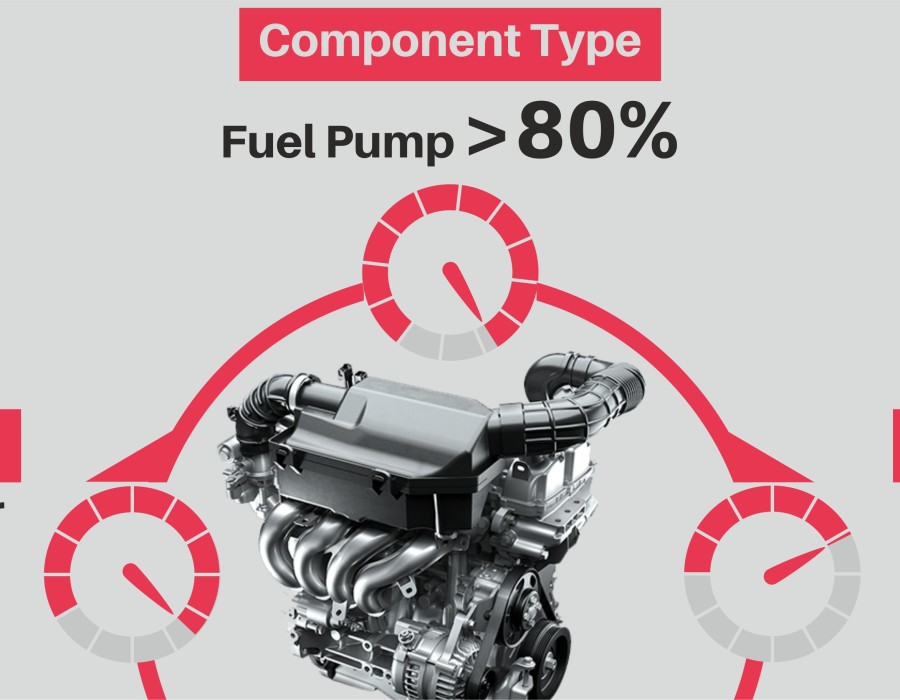According to Stratview Research, the automotive fuel systems market was estimated at US$ 13.8 billion in 2019 and is likely to grow at a promising CAGR of 7.7% to reach US$ 15.8 billion in 2025.
The automotive industry is experiencing a transformative shift towards cleaner and more sustainable transportation solutions. One critical aspect of this transformation is the innovation and evolution of automotive fuel systems. In a world increasingly concerned with reducing carbon emissions and dependence on fossil fuels, new and innovative fuel systems are at the forefront of these changes. This article explores the latest advancements in automotive fuel systems and their pivotal role in shaping the future of transportation.
The Quest for Efficiency
Fuel efficiency has long been a driving force behind innovation in the automotive industry. It's no secret that more efficient vehicles not only reduce operational costs for consumers but also have a positive impact on the environment. The quest for efficiency has led to several noteworthy innovations:
Direct Fuel Injection: Direct fuel injection technology allows for more precise fuel delivery to the engine's cylinders. This not only increases power and performance but also improves fuel efficiency by reducing wasted fuel.
Turbocharging and Supercharging: Forced induction systems, such as turbochargers and superchargers, are becoming increasingly common. These systems compress incoming air, allowing the engine to burn more fuel, ultimately boosting efficiency and power output.
Variable Valve Timing: Variable valve timing systems optimize the opening and closing of engine valves based on driving conditions, enhancing fuel efficiency and power.
Advanced Transmission Systems: Continuously variable transmissions (CVTs) and dual-clutch transmissions (DCTs) are designed to keep engines operating efficiently under various driving conditions, further improving fuel economy.
Alternative Fuel Systems
In the quest for sustainability, the automotive industry is exploring a range of alternative fuels and innovative fuel systems. These solutions aim to reduce or eliminate greenhouse gas emissions and reliance on fossil fuels:
Hybrid Systems: Hybrid vehicles combine traditional internal combustion engines with electric power. They use regenerative braking and smart algorithms to optimize fuel efficiency.
Plug-In Hybrids: These vehicles feature larger batteries and can be charged from an electrical outlet. They rely more on electric power for shorter trips, further reducing fuel consumption.
Electric Fuel Cells: Hydrogen fuel cells are gaining traction as a clean energy source. These cells produce electricity by combining hydrogen and oxygen, emitting only water vapor as a byproduct.
Natural Gas and Propane: Compressed natural gas (CNG) and propane are becoming increasingly popular as cleaner-burning alternatives to gasoline and diesel, especially in commercial vehicles.
Biofuels: Ethanol and biodiesel made from renewable resources are being incorporated into traditional internal combustion engines to reduce carbon emissions.
Connected Fuel Systems
The Internet of Things (IoT) and connected technologies are also making their way into automotive fuel systems. These innovations offer real-time data on vehicle fuel consumption and performance, allowing for more efficient driving and maintenance. Connected systems can monitor fuel usage, provide route optimization, and even enable remote vehicle diagnostics, all of which contribute to increased efficiency and reduced fuel consumption.
The Future of Automotive Fuel Systems
The future of automotive fuel systems is exciting and filled with possibilities. Autonomous vehicles, advanced driver-assistance systems (ADAS), and electrification are just a few of the trends shaping the future. Fuel systems will continue to evolve to meet the specific needs of these technologies, providing more efficient and sustainable transportation options.
Conclusion
Innovations in automotive fuel systems are driving significant changes in the automotive industry. With a focus on efficiency, sustainability, and advanced technology, these systems are helping reduce carbon emissions, enhance performance, and move us toward a greener, more connected future of transportation. As consumers demand cleaner and more efficient vehicles, the automotive industry's relentless pursuit of innovation in fuel systems remains at the heart of this transformative journey toward a sustainable and eco-friendly future on the road.






Comments